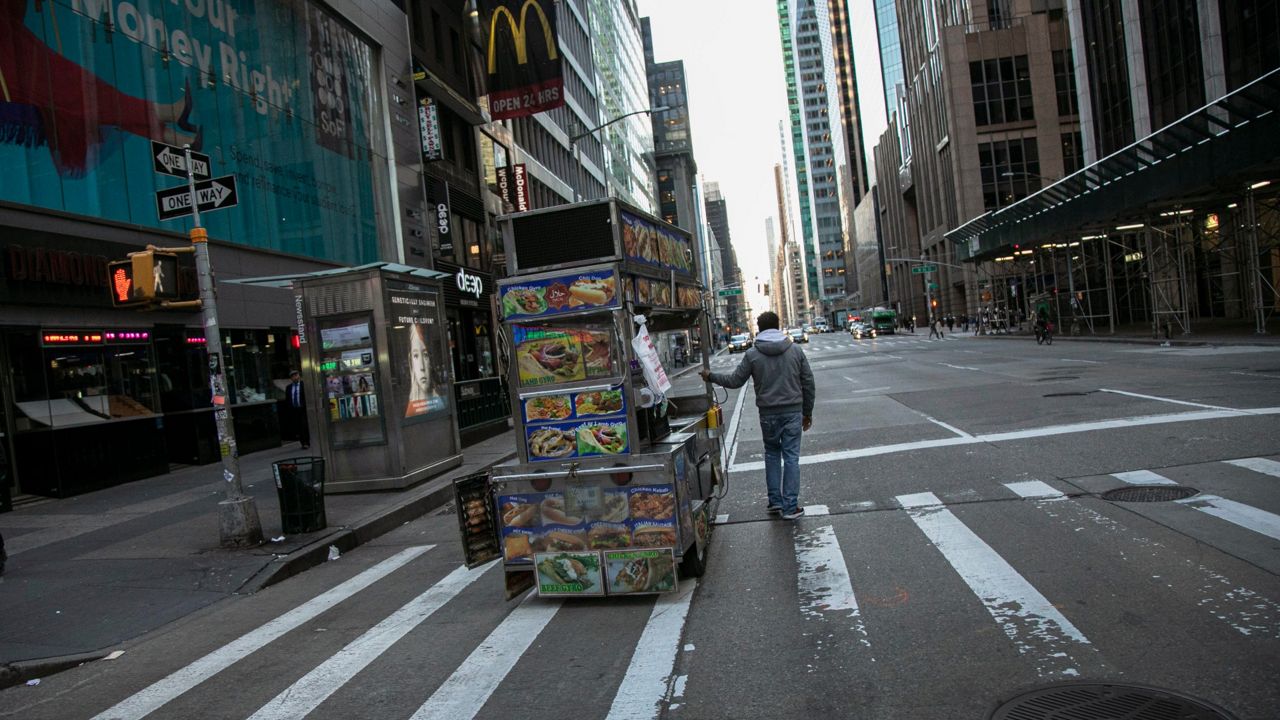NEW YORK — The City Council passed a landmark bill on Thursday that will more than double the number of street food vendor permits in the five boroughs over the course of a decade.
In the 34-13 vote, the council passed legislation that aims to give more people the opportunity to start small businesses and eliminate the underground market for street cart permits, which oftentimes costs street vendors tens of thousands of dollars, significantly more than the $200 the city charges vendors to obtain one.
“This legislation will bring hope and opportunity to hardworking New Yorkers who are immigrants, who have been historically left out of a lot of the government’s support,” said Councilwoman Margaret Chin, the primary sponsor of the bill.
It also creates an advisory board to review regulations and a new enforcement office, following Mayor Bill de Blasio’s move to end the NYPD’s purview over street vendors.
Four hundred new permits will be issued each year over the course of ten years starting next year, creating 4,000 new permits by the year 2032.
These will be in addition to the existing 3,000 permits, which will transition over to the new system.
In 1983, the number of street permits in the city was capped at 3,000. Advocates estimate that the actual number of street vendors working in NYC is closer to 10,000 to 20,000.
This scarcity has given rise to a proliferation of illegal subleasing for those wishing to operate but can't obtain a permit from the city.
“This will help our efforts to end the underground economy that has sprung up around this industry and stop bad actors from illegally leasing their permits for tens of thousands of dollars preying upon people who are just trying to make a living,” said Speaker Corey Johnson, who also sponsored the bill.
New permits will be issued to individuals as opposed to cart assignments with the goal of ending this practice.
Yet critics, including restaurant, grocery store and bodega owners, insist that the passage of this bill comes at a very inopportune time when many small businesses are struggling to stay afloat.
As restaurants have moved to outdoor dining, Councilman Mark Gjonaj, who voted against the bill, raised the question of who gets to take up sidewalk space.
“Will it escalate to confrontations in a race of whomever gets there first?” the chair of the small business committee asked, in reference to brick-and-mortar shops versus street carts. “Who will be responsible for the very sidewalk subject to sanitation tickets?”
He added: “It would have rather have been better for us to consider a comprehensive set of business rescue bills that give much-needed assistance to all businesses and not putting us in the role of picking winners and losers.”
Councilman Peter Koo, who represents Flushing, a neighborhood known to be saturated with street vendors, said he’s tried to curb this overflow, but hasn’t received the necessary support.
“No one wants anything to do with street vending and enforcement,” he said. “It’s obvious that there is simply no appetite by the mayor to direct any city agencies to enforce street vending, but they need to be regulated and enforced just like everyone else.”
He said that’s exactly why he supports the bill.
“This is the only concrete effort to create a dedicated enforcement agency whose only job is to enforce vending,” he said.
He went on to say: “The bill is not perfect, but it's a good first step and I truly hope it will put us on a path to finally reaching some equilibrium among both street vendors and brick-and-mortar business.”
Mayor de Blasio has expressed support for the bill and is expected to sign it.
